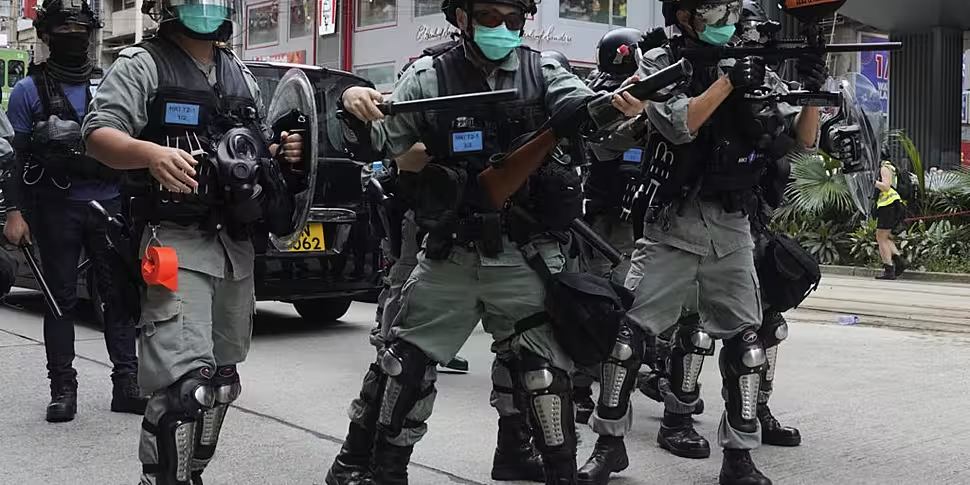Almost 200 political figures from around the world have added to increasing condemnation of Beijing's proposed national security laws for Hong Kong.
Signatories include 17 members of the US Congress, as international tensions grow over the proposal to set up Chinese government intelligence bases in the territory.
China also wants to prevent a repeat of last year when Hong Kong saw months of protests triggered by a bill that would have allowed extraditions to mainland China.
The Chinese government says the laws are necessary to "prevent, stop and punish" such protests in the future.
But protests have already started in Hong Kong over the new security legislation, with police using tear gas to disperse large crowds, some holding signs which said "Free Hong Kong".
In a joint statement organised by former Hong Kong Governor Chris Patten and former British foreign secretary Malcolm Rifkind, 186 law and policy leaders said the proposed laws are a "comprehensive assault on the city's autonomy and rule of law".
They say the laws threaten "fundamental freedoms" and are a "flagrant breach" of the Sino-British Joint Declaration that returned Hong Kong to China in 1997.
"If the international community cannot trust Beijing to keep its word when it comes to Hong Kong, people will be reluctant to take its word on other matters," they wrote.
The legislation comes as the relationship between Washington and Beijing is at a low ebb after Donald Trump blamed China for the coronavirus pandemic.
US officials have said the Chinese legislation would be bad for the economies of both Hong Kong and China and could jeopardise the territory's special status in US law.
China has dismissed other countries' complaints as meddling.
Some of the US president's fellow Republicans - Senator Marco Rubio, acting chairman of the Intelligence Committee, and Senator Ted Cruz - signed the statement.
Democratic signatories included Senator Bob Menendez, the top Democrat on the Senate Foreign Relations Committee, and Representatives Eliot Engel, head of the House Foreign Affairs Committee, and Adam Schiff, chairman of the House of Representatives Intelligence Committee.









